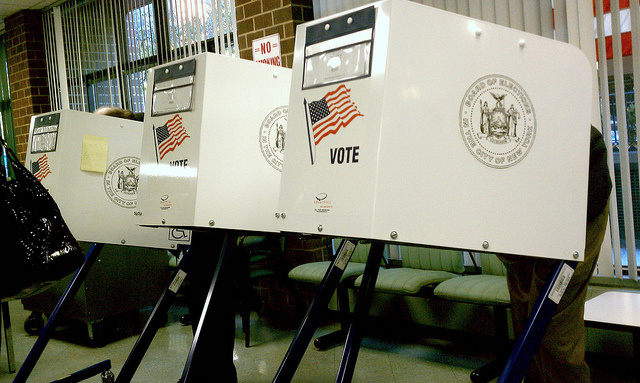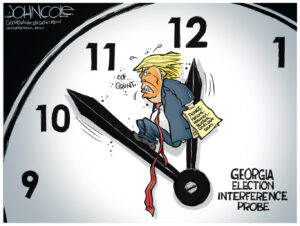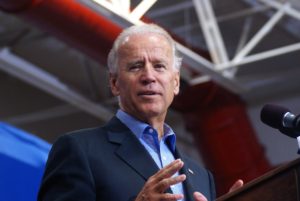Multiple Senators Back Proposals to Abolish the Electoral College
Democrats are fighting what could prove an uphill battle to change the way Americans elect presidents. Carl Mikoy / Flickr Creative Commons
Carl Mikoy / Flickr Creative Commons
After two presidential races in the last five in which the victor won the Electoral College but not the popular vote, Americans are reconsidering how they choose their presidents. According to a 2018 survey by the Pew Charitable Trusts, 55% of voters believe the president should be chosen by popular vote. Reflecting that desire, Sen. Brian Schatz, D-Hawaii, is set to announce a constitutional amendment to abolish the Electoral College, The Daily Beast reported Monday.
The bill is co-sponsored by Sens. Kirsten Gillibrand, D-N.Y., Dianne Feinstein, D-Calif., and Dick Durbin, D-Ill., a Schatz aide told Daily Beast writer Sam Stein.
Schatz’s proposal comes just days after fellow Democratic Sen. Jeff Merkley of Oregon announced he was introducing legislation to abolish the Electoral College, part of a broader package of electoral form bills, The Hill reported Friday.
“It’s time to end the undemocratic Electoral College and to ensure a pathway to full voting representation for all American citizens,” Merkley said in a statement.
The Hill reports that Merkley “also wants to establish a ‘We the People’ commission to develop a proposal to provide voting representation for D.C., Puerto Rico, and the territories of Guam, the U.S. Virgin Islands, American Samoa and the Northern Mariana Islands.”
Merkley and Schatz’s proposals have not been merged but, as Stein writes, they “reflect a growing appetite within the Democratic Party to change the fundamental structure of America’s electoral system.”
Other Democratic presidential hopefuls, including Sen. Elizabeth Warren, D-Mass., and Pete Buttigieg, mayor of South Bend, Ind., have also said they want to end the Electoral College.
Momentum for electing presidents by popular vote has been building at the state level since at least 2006, according to the National Conference of State Legislatures. Thirteen states and Washington, D.C., have signed the National Popular Vote Interstate Compact, in which signatory states agree to give their electoral votes to the popular-vote winner. That agreement will only take effect if states representing 270 votes sign on; the votes of the compact’s 14 signatories to date represent 184.
Proposals to end the Electoral College still have tough odds of being enacted. As Chelsea Janes writes in The Washington Post, Republicans “say the [Electoral College] rightly preserves the influence of small states.” That these and similar proposals to overhaul campaign finance, gerrymandering and other electoral reforms are even being considered, Janes says, “speaks volumes about the state of the Democratic Party in the age of Trump, reflecting a sentiment in the party that the system has stopped working fairly—a grievance once voiced more often by conservatives, including President Trump.”
Buttigieg emphasized that these proposals are part of a long-term strategy. “When we’re talking about things that might entail constitutional reform, it’s a very long game,” he told the Post, adding, “but I think you do it out of the gate, if only to remind people of the level of ambition we have. … We’ve sometimes underestimated how much America can handle.”
Your support is crucial...As we navigate an uncertain 2025, with a new administration questioning press freedoms, the risks are clear: our ability to report freely is under threat.
Your tax-deductible donation enables us to dig deeper, delivering fearless investigative reporting and analysis that exposes the reality beneath the headlines — without compromise.
Now is the time to take action. Stand with our courageous journalists. Donate today to protect a free press, uphold democracy and uncover the stories that need to be told.






You need to be a supporter to comment.
There are currently no responses to this article.
Be the first to respond.